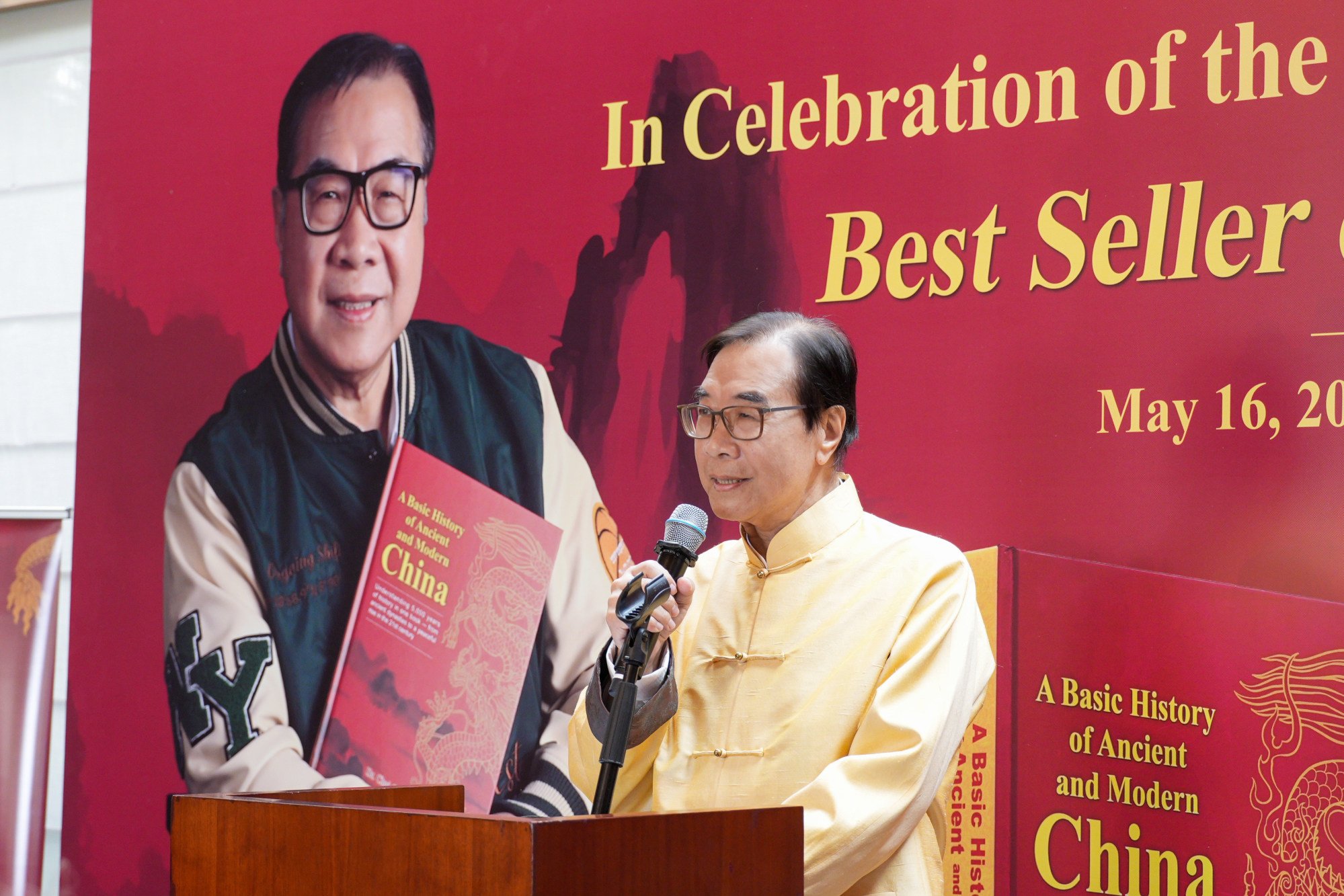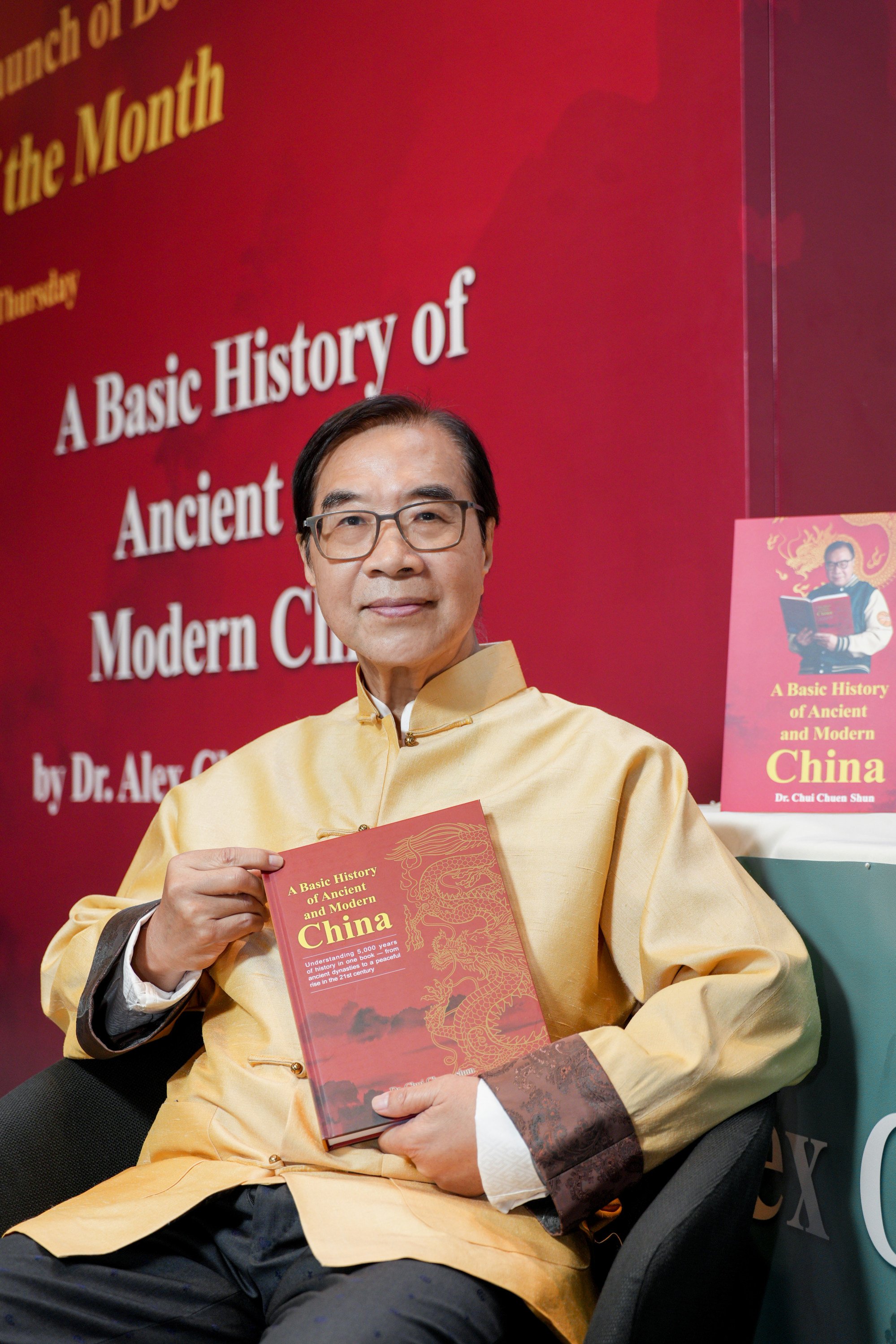A book by a Hong Kong author makes Chinese history accessible to children around the world

When Chui Chuen-shun decided to write a book about Chinese history and culture, he did not have an academic approach in mind.
Instead, it was his grandchildren attending international schools in Hong Kong who inspired him. He saw a gap in the market for English-language children’s books that covered ancient and contemporary Chinese history in a light and easy-to-understand way.
“Chinese history is sometimes taught in a fragmented way, especially in international schools,” says Chui. “This book provides context and chronology of events in Chinese history and is written in a concise and easy-to-understand style. I hope it will help students understand how and why history happened the way it did, and how it affects us today.”
A basic history of ancient and modern China was published in October 2023. Despite its target audience, the book is ambitious in its scope: in just one volume, Chui covers the history of China from prehistory to the present.

The 288-page book begins with Yuanmou Man, who archaeologists believe lived in Yunnan Province 1.7 million years ago, and ends with a discussion of modern China’s most geopolitically sensitive issues, such as Hong Kong, Taiwan and the Diaoyu Islands, known in Japan as the Senkaku Islands.
Chui hopes the book will reach the more than 45 million ethnic Chinese who grew up, were educated and live outside China and who find it easy to lose touch with their ancestral history and cultural DNA.
“They may also want to learn more about their roots and the history of their ancestors, especially as China becomes a leading world power,” he says. “I believe more and more people will feel the need to understand this part of their heritage.”

Although he is not a trained historian — he is a retired accountant — Hong Kong-born Chui says he can bring some unique perspectives, having worked in mainland China for 18 years.
This may explain why so much of the book focuses on China’s recent history, with just under half of the book dealing with modern China after 1912, when 2,000 years of imperial rule came to an end.
Another focus is on Chinese basic values and their origins. Chui uses the framework developed by Professor Zhang Lihua of Tsinghua University. According to this, there are eight basic values in Chinese national psychology: harmony, goodness, righteousness, politeness, wisdom, honesty, loyalty and respect for parents.
Studying traditional Chinese culture and values can enhance our understanding of life, culture and society in modern China.
The basic principles of these values have not changed over the centuries, even though they have evolved over time, says Chui.
“Taken together, these values emphasize community, social stability and social order. They are embodied in China’s diplomacy by the concept of harmony, the most important of the traditional Chinese values.”
Chui says the importance, or even need, for the world to try to understand Chinese history and values has increased in recent years, in parallel with the country’s economic, technological and political growth.
“Chinese values and culture are widespread in the lives of modern people in China. The philosophies of thousands of years ago are still visible and influence today’s culture. Studying traditional Chinese culture and values can improve our understanding of life, culture and society in modern China,” he says.
The response to the book has been positive, says Chui. “I have older friends who have said that their adult children, who were born and raised abroad, found this book uplifting. It gives me joy to see how different readerships find their own meaning and honor in being Chinese.”



